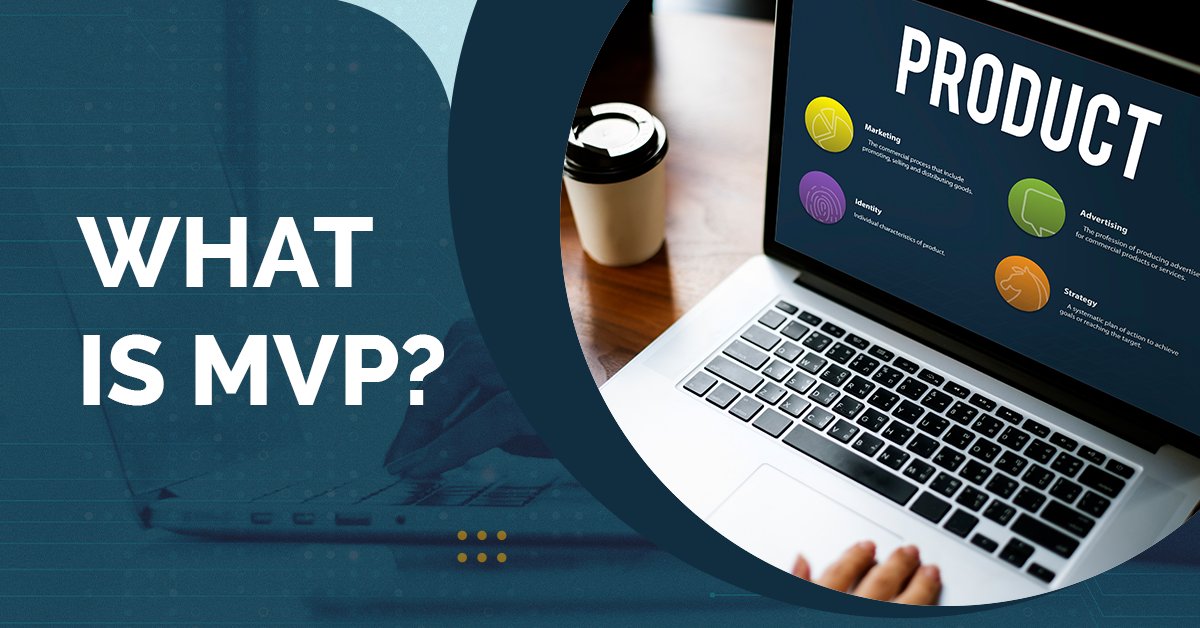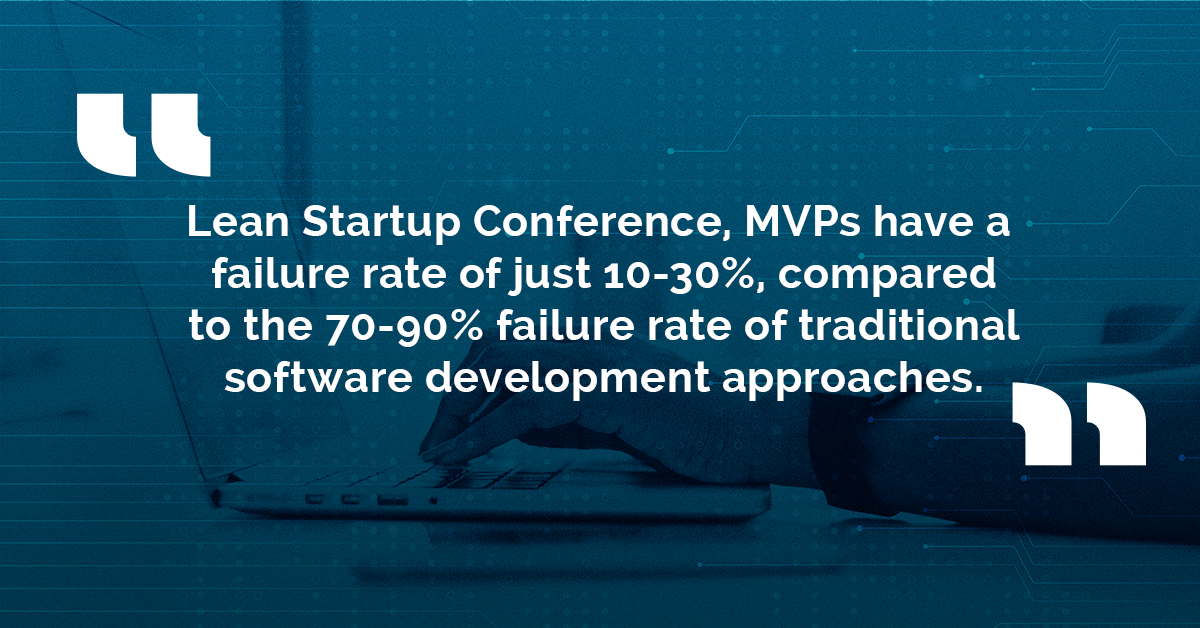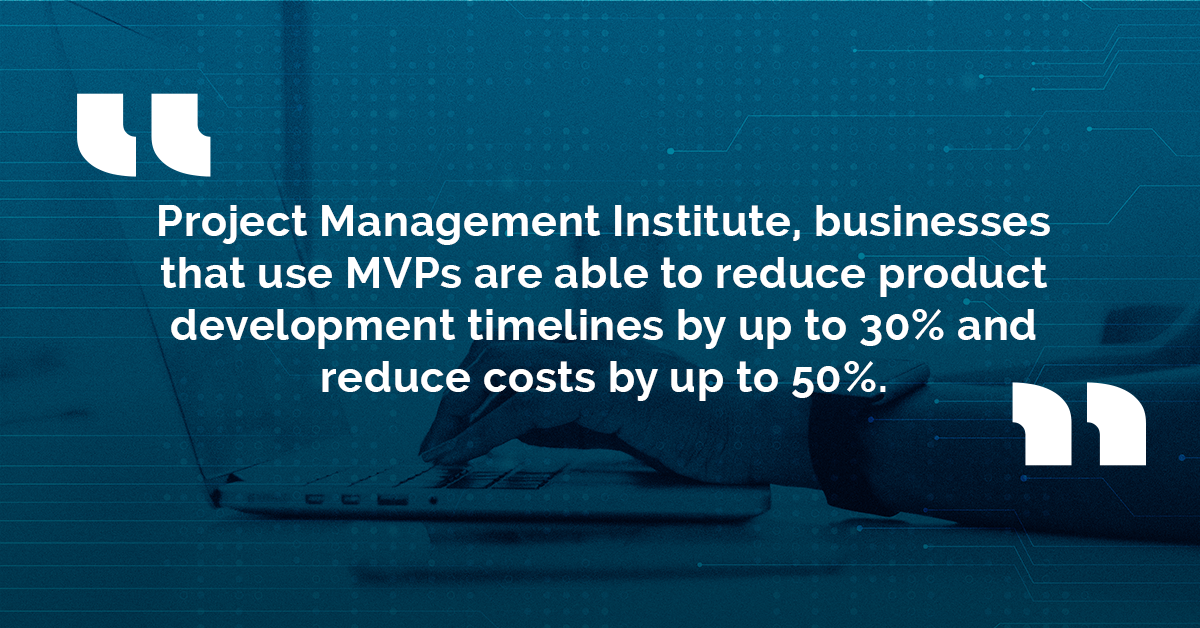Today, Minimum viable products or MVPs in software development is a popular approach. They allow businesses to quickly test the market and gather insights into customer needs and preferences. An MVP is a basic version of a product with enough features to allow customers to use it. And then improve and add more features to the product over time as they work towards the final, refined version. This approach can be more efficient and cost-effective than developing a full product from scratch. It allows businesses to gather feedback from early adopters and make informed decisions about how to proceed with development.
In this blog, we will explore the benefits of using MVPs in the software development business. These benefits include the ability to validate ideas, identify and prioritize features, gather data and insights, save time and money, and adapt to changing market conditions.

What is MVP?
A minimum viable product (MVP) is a development approach in which a new product is introduced to the market with a limited set of features. The intention is to gather feedback from early adopters. The goal is to test the product’s core functionality, before investing significant time and resources into fully developing it. In the meantime, feedback from early adopters is gathered as quickly as possible so that the product can be improved and refined based on them. This process helps in making informed decisions about how to proceed with the product or software development.
Here are five reasons why MVP is essential for a software development company:
5 Reasons Why Use MVPs in Software Development
Explore the reasons why MVP is an essential approach for software development companies looking to bring new products to the market.
- MVP Allows Businesses to Validate Their Ideas and Gather Valuable Feedback
Building a complete software product from scratch can be a time-consuming and costly process. With MVP, businesses can create a basic version of their product and test it in the market to see if there is demand for it. This allows businesses to validate their ideas and gather valuable feedback from customers before investing significant resources in development.

According to a survey by the Lean Startup Conference, MVPs have a failure rate of just 10-30%, compared to the 70-90% failure rate of traditional software development approaches.
- MVP Helps Businesses Identify and Prioritize Features
MVP allows businesses to identify the most important features of their product and prioritize their development. This helps them focus on building a product that meets the needs of their target audience and avoids building unnecessary features. MVPs help businesses prioritize the development of valuable features, leading to higher customer satisfaction. According to the same survey by the Lean Startup Conference, MVPs allow businesses to identify and prioritize the most valuable features of their product, resulting in a 50% increase in customer satisfaction.
- MVP Allows Businesses to Gather Valuable Data and Insights
By releasing an MVP, businesses can gather data on how customers are using the software and what features they value the most. This data can inform future product development and help businesses make informed decisions about which features to add or remove. MVPs allow businesses to gather valuable customer data and insights that can help improve the success of their software products. According to a study by the MIT Center for Digital Business, businesses that use MVPs are able to gather up to 50% more customer data compared to traditional product development approaches.
- MVP Helps Businesses Save Time and Money
Businesses can get their product to market faster and at a lower cost by releasing an MVP. This allows businesses to start generating revenue and feedback from customers sooner rather than later.

According to a survey by the Project Management Institute, businesses that use MVPs are able to reduce product development timelines by up to 30% and reduce costs by up to 50%.
- MVP allows businesses to adapt to changing market conditions
The software development industry is constantly evolving, and it can be challenging for businesses to keep up with changing customer needs and preferences. MVP allows businesses to gather real-time feedback from customers and adapt their products accordingly. According to a study by the Harvard Business Review, businesses that use MVPs are able to respond to changing market conditions up to 50% faster compared to traditional product development approaches.
In conclusion, MVP is a useful approach for businesses in software development. It allows them to test the market quickly and gather valuable insights into customer needs and preferences. MVPs also allow businesses to identify and prioritize features, gather data and insights, save time and money, and adapt to changing market conditions. By releasing an MVP, businesses can validate their ideas and gather feedback from customers. This helps them build a successful software product that meets the needs of their target audience.


